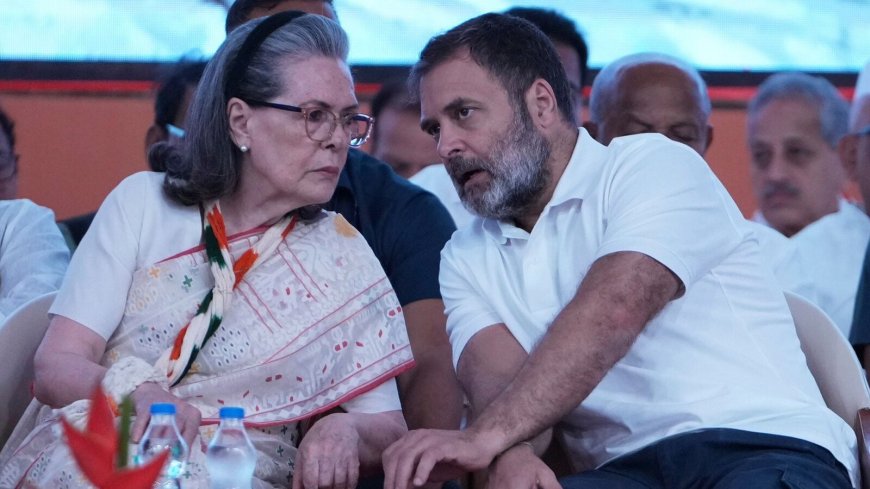At AICC session in Gujarat, Rahul Gandhi pushes for caste census in the country, hails Telangana for showing the way
Congress leader Rahul Gandhi on Wednesday said that the party will demolish wall of 50 per cent reservation for SC, ST, OBC. Gandhi was at the AICC session in Ahmedabad, Gujarat.

At AICC Session in Gujarat, Rahul Gandhi Pushes for Caste Census in the Country
News by dharmyuddh.com
Introduction to the AICC Session
In a significant development, Congress leader Rahul Gandhi delivered a compelling address during the All India Congress Committee (AICC) session held in Gujarat. The focus of his speech was the urgent need for a caste census in India, emphasizing its transformative potential for social justice and equitable resource allocation. As political debates intensify around issues of representation and equity, Gandhi's call echoes the sentiments of many advocating for a comprehensive demographic assessment of the country’s diverse population.
Importance of a Caste Census
Gandhi's push for a caste census comes at a crucial time when understanding the socio-economic dynamics of various communities is more important than ever. The information gathered from a caste census would not only guide policy-making but also help in addressing long-standing disparities in education, employment, and social welfare. By quantifying the population's caste composition, it would be possible to tailor programs that specifically address the needs of marginalized groups. This initiative is particularly significant for states like Gujarat, where caste identities play a pivotal role in political and social frameworks.
Telangana as a Model
In his address, Rahul Gandhi hailed Telangana for taking the lead in conducting a caste census. He pointed out that the state’s initiative serves as a model for others to follow, showcasing the potential benefits of such a comprehensive demographic study. Telangana's approach has been lauded for its inclusivity and transparency, which align with Gandhi’s vision of a more equitable India. By advocating for this model, Gandhi aims to rally support from various political factions, emphasizing that the caste census is not merely a political tool but a means to uplift the marginalized sectors of society.
The Political Ramifications
The demand for a caste census is expected to have significant political ramifications across India. As parties prepare for upcoming elections, the caste dynamics within states like Gujarat cannot be overlooked. By prioritizing this issue, Gandhi aims to galvanize support from various caste groups, potentially reshaping the political landscape. This move could also lead to greater competition among political parties to address caste-based disparities effectively, ultimately benefitting the broader population.
Conclusion
Rahul Gandhi's advocacy for a caste census during the AICC session marks a critical juncture in the political discourse surrounding social justice and representation in India. With Telangana setting an example, the need for a nationwide initiative is increasingly resonating among citizens and political leaders alike. For more updates, visit dharmyuddh.com. Keywords: AICC session Gujarat, Rahul Gandhi caste census, caste census India, Telangana model, social justice India, political implications caste census, socio-economic dynamics caste, Congress party Gujarat.







